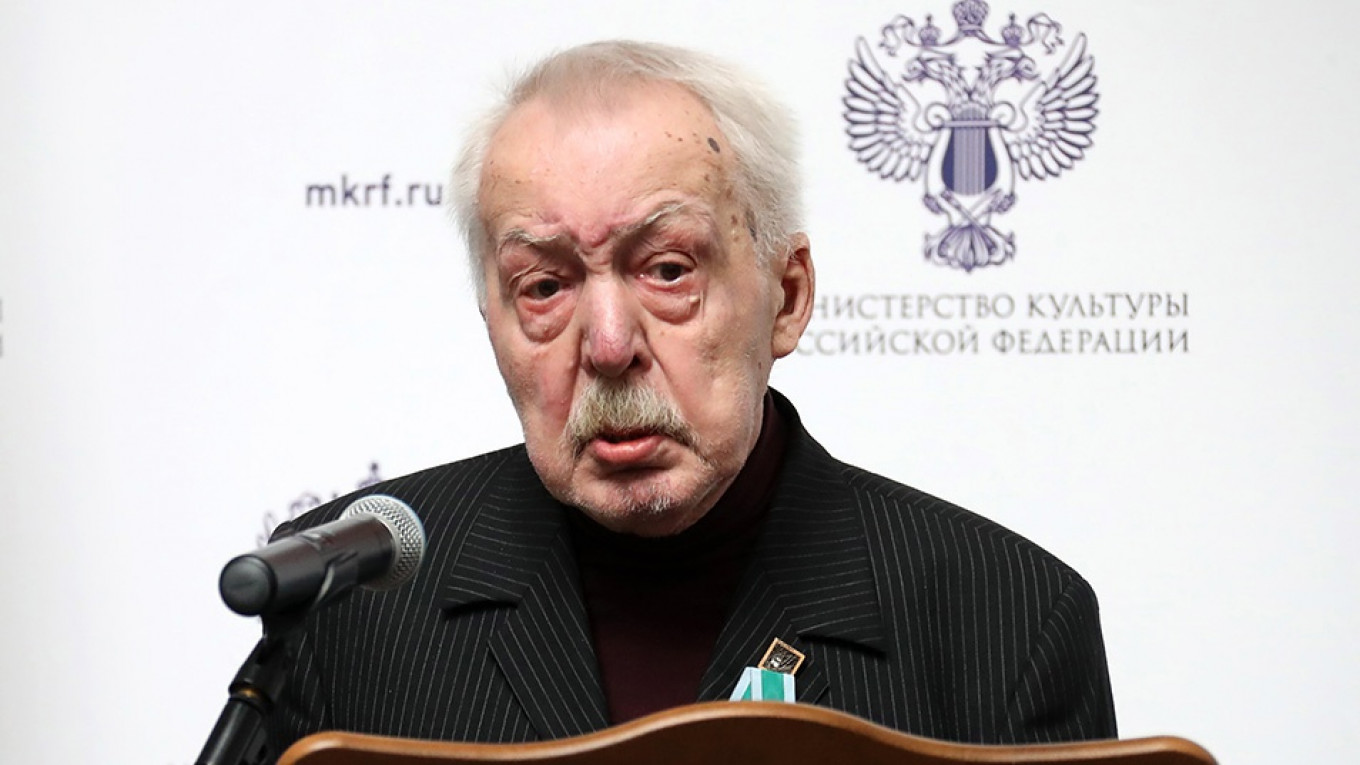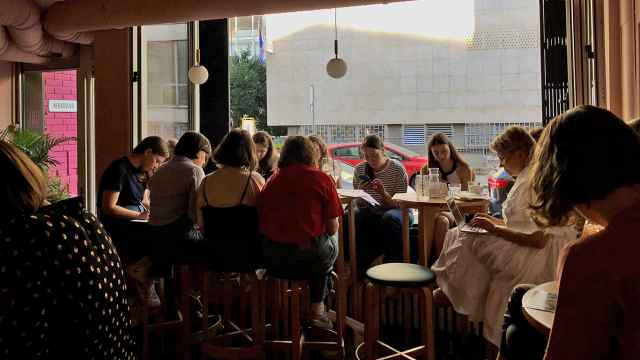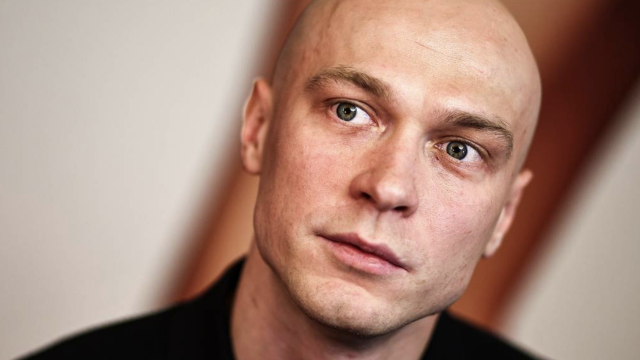Russian literary figures Lev Rubinstein and Galina Yusefovich announced the death of their friend and colleague Andrei Bitov, who passed away in a hospital in Moscow on Dec. 3. Widely acknowledged as one of the founders of Russian postmodernism, Bitov was considered one of the greatest writers of his generation. He was 81 years old.
Of Circassian descent, Bitov was born in Leningrad (present-day St. Petersburg) in 1937 to a mother who was a lawyer and a father who was an architect. Bitov was evacuated as a child from the city during the Siege of Leningrad in 1941-1944 but returned after the war to the city, where he completed secondary school, began writing poetry, and entered the Leningrad Mining Institute(LMI). At LMI, Bitov began attending Gleb Semyonov’s well-known literary circle for young writers, which would include such luminaries as Joseph Brodsky and Sergei Dovlatov among its members through the years.
Bitov’s first three stories were published in the literary almanac “Young Leningrad” by the time he graduated from LMI in 1962. By the next year, his first collection of short stories had already appeared, and, in 1965, Bitov was accepted into the Soviet Union of Writers. He would go on to would publish several books of prose over the next decade.Bitov’s most famous work, “Pushkin House,” was written between 1964 and 1971. “Pushkin House" is considered one of the first postmodern novels written in Russian literature. However, as it failed to fit in with the official style of Soviet literature at the time, it managed to be published only in the United States by Ardis publishing house in 1978.
Consequently, Bitov joined other writers in founding the samizdat (underground, self-published) journal “Metropol” in 1978. The appearance of an issue of “Metropol” in the American press caused much trouble for Bitov: he was expelled from his teaching position at the Moscow Literature Institute and was banned from leaving the country by Soviet authorities. Bitov’s works were also largely banned from publication in the Soviet Union from then until the beginning of perestroika. “Pushkin House” was finally published for the first time in the USSR in 1987 and met with wide acclaim.
In 1991 Bitov was elected president of the Russian branch of PEN International, PEN Club, which was founded in 1988 by Bitov and others to promote the role of literature in cross-cultural understanding, the principle of freedom of expression, and the intellectual cooperation among writers all over the world. Bitov’s last years as PEN Club president in 2014-2016 were shadowed by controversy due to a very public schism between the organization’s executive board and some of the organization’s most famous writers, who began to critique the PEN Club board and even withdraw their membership from the organization.
Bitov garnered many awards over the course of his life. For his contributions to literature and the arts, he received Germany’s Pushkin Prize in 1989 and France’s Order of Arts and Letters in 1993. In his native Russia he was bestowed, among other awards, the Platonov Award in 2015 and the Order of Friendship in 2018. Bitov was an honorary member of the Russian Academy of Arts.
The family has not yet announced funeral arrangments.
A Message from The Moscow Times:
Dear readers,
We are facing unprecedented challenges. Russia's Prosecutor General's Office has designated The Moscow Times as an "undesirable" organization, criminalizing our work and putting our staff at risk of prosecution. This follows our earlier unjust labeling as a "foreign agent."
These actions are direct attempts to silence independent journalism in Russia. The authorities claim our work "discredits the decisions of the Russian leadership." We see things differently: we strive to provide accurate, unbiased reporting on Russia.
We, the journalists of The Moscow Times, refuse to be silenced. But to continue our work, we need your help.
Your support, no matter how small, makes a world of difference. If you can, please support us monthly starting from just $2. It's quick to set up, and every contribution makes a significant impact.
By supporting The Moscow Times, you're defending open, independent journalism in the face of repression. Thank you for standing with us.
Remind me later.






